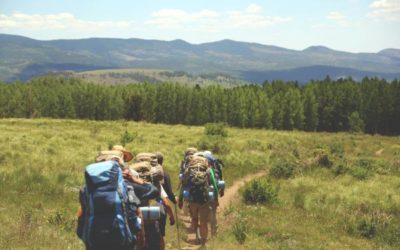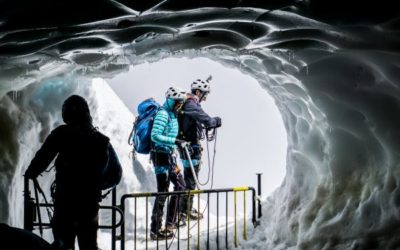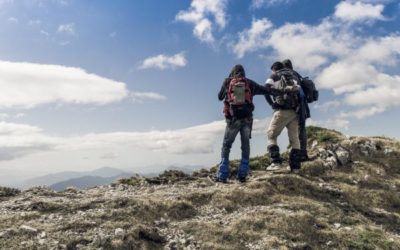Young people are yearning for a meaningful vision for their future. The world of video games, and reality TV has only deepened their starvation for experiences that cause true transformation and cast compelling vision for their ultimate purpose. Thankfully, first century Palestine was absent of Grand Theft Auto IV and Boom Blox, but in reality, it did not lack distractions and burdens that were equally concerning. There were distractions of wealth, poverty, and religions. There were weighty burdens of Pharisaical laws and bitter Roman occupation. As Jesus looked into the culture of His day He settled on a surprising strategy to engage it: He chose a group of young people to turn the world upside down, He used the wilderness as His primary classroom, and He employed adventure to produce radical commitment toward His mission.
Why Wilderness Adventure Camping is So Effective
Young people need time away from distractions so they can rest their soul and learn to think clearly. Experiential learning accomplishes this through natural decision- making scenarios, and it teaches them how to avoid trivial emotional distractions while alone or within a group (Rose, 33). Simon Beames, interviewed several British kids during an adventure experience in Ghana who affirmed this reality:
Rufus felt that ‘living in a tight community where there’s no escape’ was an important aspect of the experience. He explained… ‘in the UK if you don’t like someone you can just walk away or not phone them again or stay out of their way’ …. [But in wilderness, another participant Gordo commented], ‘It’s not just about speaking to people you get on with best. Its about learning to speak with people that you want to avoid!’ …. (150)
Wilderness journeys draw out the best in young people by confronting their fears and exposing the traps of entitlement. Young people want to pursue a radical mission, and the wilderness can sever the entanglements that strangle away God’s epoch vision for their lives.
Wilderness Classrooms and the Fruit of Adventure
Jesus preferred to illustrate Kingdom truth in the context of Creation. He taught along roads, atop mountains, in fields, in boats, while resting in gardens. He used adventure to produce faith. For example, after a long and tiring day of ministry Jesus instructed His Disciples to go over to the other side of the lake for some rest:
And there arose a fierce gale of wind, and the waves were breaking over the boat so much that the boat was already filling up. Jesus Himself was in the stern, asleep on the cushion; and they woke Him and said to Him, ‘Teacher, do You not care that we are perishing?’ And He got up and rebuked the wind and said to the sea, ‘Hush, be still.’ And the wind died down and it became perfectly calm. And He said to them, ‘Why are you afraid? How is it that you have no faith?’ They became very much afraid and said to one another, ‘Who then is this, that even the wind and the sea obey Him?’ (Mark 4:37-41)
Their strength was tested by the treachery of a furious squall to the point they thought they were going to die. Waking up in the stern of the boat, Jesus talked to the wind commanding it to halt its fury. The waves calmed. What an eerie experience that must have been to witness a conversation between Christ and His Creation! Jesus intentionally crafted this wilderness experience to show them that although they had every reason to trust Him, they still lacked faith. Could they have learned the same lesson from a lecture hall in the Temple? Or in this case, were the classroom of the sea and the timing of a raging tempest necessary to transform their hearts? The Scriptures seem to indicate the latter to be true.
Why is wilderness adventure camping so effective? Jesus shows us that the wilderness is a place where God gets our attention. If this was the way He chose to apprentice young people, then is it not equally critical now in our increasingly urban world for young people to encounter Him through wilderness adventure? Today we must re-discover this ancient apprenticing method, which produced leaders such as Noah, Abraham, Sarah, Moses, Jacob, David, Peter, James, John, and Paul. Each of them were profoundly called and shaped by God in the wilderness.




